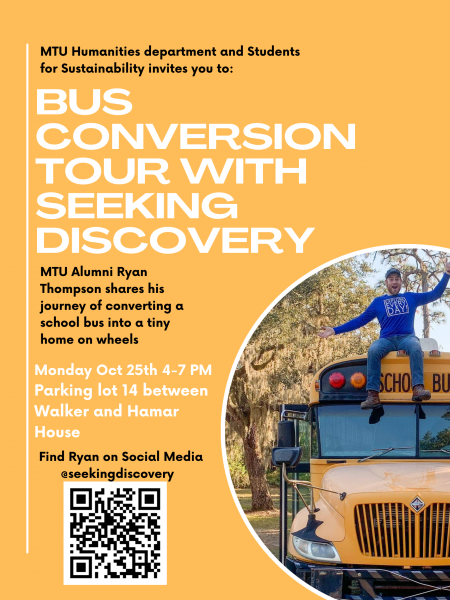Michigan Tech is one of the nation’s most environmentally responsible colleges, according to The Princeton Review®.
The education services company features Michigan Tech in its website resource, The Princeton Review Guide to Green Colleges: 2022 Edition, released on October 26, 2021. The guide is accessible for free at www.princetonreview.com/green-guide.
The Princeton Review chose the 420 schools in the guide based on its survey of administrators at 835 colleges in 2020-21 about their institutions’ commitments to the environment and sustainability. The company’s editors analyzed more than 25 survey data points to select the schools.
“It’s great for Michigan Tech to receive recognition for all of the sustainability accomplishments that our students, staff, and faculty have achieved over the years” notes Alan Turnquist, the new Director of Sustainability and Resilience. “Our biggest challenges lie in front of us, though, and the question is how we can turn these early successes into a long arc toward a more sustainable and resilient future.”
“We strongly recommend Michigan Tech to students who care about the environment and want to study and live at a green college,” said Rob Franek, The Princeton Review’s Editor-in-Chief. “Michigan Tech offers excellent academics and demonstrates a commitment to sustainability that is exemplary on many counts.”
Franek noted that The Princeton Review has seen an increasing level of interest among students in attending colleges with green practices, programs, and offerings. Seventy-eight percent of the more than 11,000 college applicants that participated in The Princeton Review’s 2021 College Hopes & Worries Survey said that having information about a college’s commitment to the environment would affect their decision to apply to or attend a school. This was a 12% increase over the 66% so indicating on the company’s 2020 survey. A report on the findings of the survey which also polled parents of college applicants is downloadable at www.princetonreview.com/college-hopes-worries.
The profiles of schools in The Princeton Review Guide to Green Colleges include “Green Facts” sections detailing such matters as the availability of transportation alternatives on campus and the percentage of the college food budget spent on local/organic food. The profiles also provide information about the schools’ admission requirements, cost, financial aid, and student body demographics.
In its profile, The Princeton Review notes that “Michigan Tech is home to a dynamic range of sustainability research centers, including the Center for Water and Society, the Ecosystem Science Center, the Wood-to-Wheels research project for wood-based biofuel, and the Center for Environmentally Benign Functional Materials.”
The Princeton Review has published its Guide to Green Colleges annually since 2010. The company is also known for its dozens of categories of college rankings in its book, The Best 387 Colleges, and its website resources including The Best Value Colleges.
How Schools Were Chosen for the Guide
The Princeton Review chose the 420 colleges based on its 2020–21 survey of administrators at 835 colleges concerning their institutions’ sustainability-related policies, practices, and programs. The company’s editors analyzed more than 25 data points from the survey to tally Green Rating scores for the schools on a scale of 60 to 99. The Green Rating scores appear in the school profiles on The Princeton Review website and in The Princeton Review book, The Best 387 Colleges: 2022 Edition (published August 2021).
Colleges that earned a Green Rating score of 80 or higher were chosen for the Guide to Green Colleges. Of the 420 schools selected for the guide, 391 are in the U.S., 26 in Canada, one in Ecuador, one in Egypt, and one in Greece. The schools are listed alphabetically in the guide and not ranked overall from 1 to 420. Twenty-seven of the 420 schools earned a Green Rating score of 99 (the highest possible score). They are also listed in The Princeton Review’s Green Honor Roll (reported August 2021).
